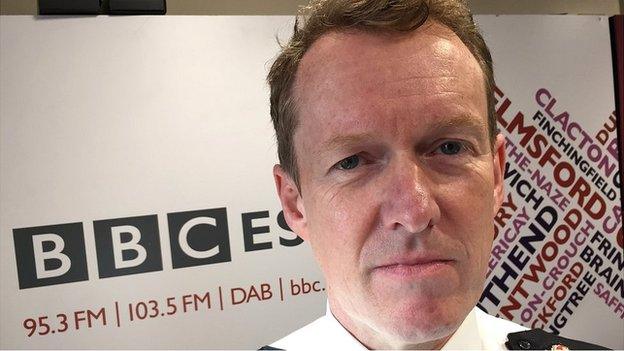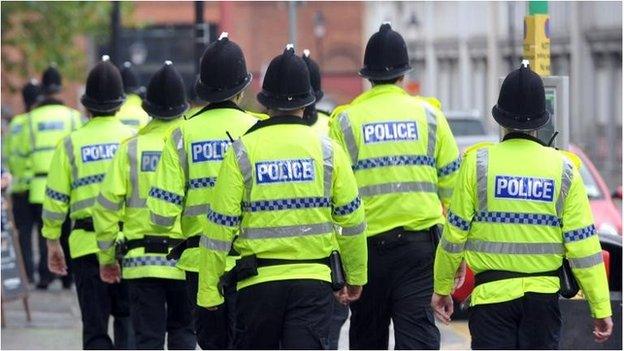Essex Police to stop responding to 'minor' noise, animal and parking issues
- Published

Stephen Kavanagh said the force had to save another £60m on top of the £50m cutbacks it had already received from government
Essex Police will no longer respond to "minor incidents" such as noise complaints and parking offences due to budget cuts, its chief constable said.
Stephen Kavanagh said he had lost 700 officers and at least 500 more would go as the force looks to save £60m.
He said repeat anti-social offenders would be dealt with but his focus had to be on more serious crimes.
"Too many people assume £60m will be taken out and think we will come out and do the same," he said.
"The public need to help us at this difficult time."
Mr Kavanagh told BBC Essex a number of police stations around the county would also be shut to save money.
'Most difficult time'
The force currently employs 2,999 officers, 377 specials, 254 police community support officers (PCSOs) and 1,848 other staff. Mr Kavanagh said more than 90% of his budget was spent on salaries.

A further 500 officers are to go from Essex Police due to cutbacks, the chief constable said
The chief constable said his force would continue to respond to crimes that are "harming people" or where people are at risk of harm, such as burglaries, robberies, sex offences, child grooming and missing people.
But he said officers could not respond to the same number of things they had previously, adding that people reporting offences in which there was no immediate danger should be realistic about the response they would receive.
He said the worst cases of anti-social behaviour would be investigated but many noise, animal and traffic offences should be dealt with by other authorities.
He also raised concerns over the 999 system being abused, with someone recently getting angry with a call handler because they would not deal with a ferret trying to get into a chicken shed.
"We get 1,200 calls a day, we can respond to about 600 of those - most of them are not emergencies," said Mr Kavanagh.
"It's the most difficult time in policing since the Second World War. We can't respond to everything all the time."